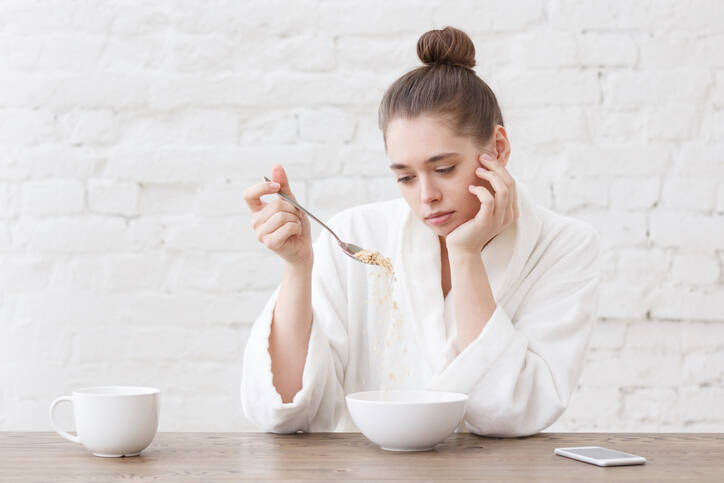- viapractica.sk - Outpatient blood pressure monitoring
- solen.sk - Low blood pressure in a GP's surgery
- kardioklub.biznisweb.sk - Fainting, syncope, collapse
What helps with low blood pressure? Can lemon, herbs or other grandmotherly advice help?

Are you often dizzy, tired and weak? Maybe you also suffer from low blood pressure. So you should also know what you are at risk of and how to help yourself from low blood pressure.
Article content
I need to raise my too-low blood pressure, but how to do it?
Read along and get it above 90/60.
Low blood pressure can be a manifestation of disease, but it can also be experienced by a perfectly healthy individual. A sudden drop in pressure that is associated with a collapsed state is particularly dangerous.
Collapse is a short-term loss of consciousness caused by reduced blood flow in the brain. Read also our magazine article.
Hypotension, as low blood pressure is professionally called, is a symptom rather than a disease. It may not cause as much damage to the body as high blood pressure, but it can be dangerous in other ways.
If you're often tired, have tinnitus and occasionally feel dizzy, you may also suffer from low blood pressure.
Hypotension is when your blood pressure monitor shows readings of 100/60 or less. This condition may be of a more prolonged nature or sudden.
Low blood pressure is not so often talked about and rarely heard about low blood pressure medication. However, it is not good to underestimate it. Both acute and long-term hypotension can be dangerous as well as have a negative effect on the body.
Let's take a look at what all can cause low blood pressure, what types of hypotension exist and, most importantly, how to avoid or treat it.
Blood pressure readings tend to be somewhat individual for each person. Some may experience difficulties with low or high blood pressure, while others do not experience similar readings on their health.
Hypotension is well tolerated from a certain point of view. It does not damage blood vessels and organs, as is the case with high pressure. The problem arises if the organs are not sufficiently blooded as a result of low pressure.
If the blood cannot supply the cells of any organ, malfunctions are bound to occur.
The brain is the most sensitive organ to a disturbance in blood supply.
Low blood pressure most often affects young, slim women and the elderly. In women, it is usually caused by regular bleeding associated with the menstrual cycle, and in the elderly by dehydration due to insufficient fluid intake.
Different types of low blood pressure (table)
| essential - primary | chronic hypotension, the onset of which is without a known provoking cause | the real reason for the low pressure is often unclear |
| secondary | Chronic (long-term) hypotension, the cause of which is, for example, cardiovascular disease | stenotic valvular defects, heart failure, endocrinopathies, autonomic nervous system involvement |
| orthostatic | sudden transition to the upright position, bleeding of the brain | is particularly common in people taking drugs to lower blood pressure or to promote urination |
| habitual | predominantly in young, thin women | mostly uncomplicated |
The causes of low blood pressure can be multiple, from fluid loss due to dehydration or bleeding to medication to cardiovascular and neurological disease.
Symptoms of long-term hypotension include:
- Fatigue
- general weakness
- nausea
- dizziness
- heart palpitations
- tinnitus
- disturbances of consciousness
Acute versus chronic hypotension
Clinically, we can distinguish between acute or chronic low blood pressure conditions. A common example of a sudden (acute) drop in blood pressure is collapse.
Hot weather combined with a lack of fluids results in dilated blood vessels. The person stands up suddenly, the brain is uncovered by gravity, blood pressure drops and there is a short-term loss of consciousness.
Chronic blood loss is again exemplified by prolonged bleeding, for example in stomach ulcers, cancer and so on.
Chronic essential idiopathic hypotension is prolonged low blood pressure without a known cause. It occurs mainly in women aged 20 to 30 years. Manifestations include reduced physical and mental performance, exhaustion, dizziness.
Chronic secondary hypotension occurs on the basis of another disease. It may be caused by heart disease, chronic diarrhoea or chronic bleeding.
According to the cause of low blood pressure, there are three main groups (table)
| a fall in cardiac output | failure of the heart as a pump |
| vasodilatation | systemic dilation of blood vessels, for example due to heat or drugs |
| loss of circulating blood volume | bleeding, dehydration |
Treatment and prevention of low blood pressure
The solution lies mainly in lifestyle modification and reduction of risk factors. Rarely is the treatment of low blood pressure approached through medication.
Diagnosis
First of all, it is essential to determine the type of hypotension. It is important to understand whether it is sudden (acute) hypotension or long-term (chronic) hypotension.
Transient hypotension with impaired consciousness and spontaneous recovery mainly indicates a collapsed or syncopal state. Without spontaneous return of consciousness, it is important to look for another cause. Both history and symptoms will help.
Possible causes of a fall in blood pressure and their symptoms in the table
| Pallor | blood loss, hypovolaemia |
| cyanosis - blue discoloration of the skin and mucous membranes due to poor oxygenation | pulmonary embolism |
| dry skin, reduced skin turgor - skin tension | dehydration |
| fever | septic shock, dehydration |
| insect bites | allergic, anaphylactic shock |
With sudden onset of low pressure, rapid heart action is almost always present. Exceptions may be made, for example, in patients who are taking medication to slow the heart.
You may also be interested in the article.
The treatment of hypotension focuses on the underlying cause. Most often it is various heart diseases or neurological diseases. In case of dehydration, diarrhoea or blood loss, so-called volumotherapy is necessary. This involves hydration and fluid replenishment, most often through infusion therapy.
In the case of frequent problems with low blood pressure, it is also necessary to think about the cause in the form of excessive use of high blood pressure medication. This applies, of course, to patients who are taking medication to lower their blood pressure.
Living with low blood pressure
People suffering from low blood pressure should avoid situations that may aggravate the condition. There are many factors that cause a drop in pressure.
Hypotension (low blood pressure) can trigger or worsen:
- standing for long periods of time
- rapid standing
- intake of food with a high sugar content
- a hot environment
- low water and food intake
Pump up your life
Movement is vitality. Get your body moving and get the blood pumping in your veins. By doing regular cardio training, you support the proper functioning of your heart and vascular system and keep your body and mind in good shape. Plus, you can firm and shape your entire body as needed.
Sport also brings with it the release of large amounts of endorphins. These hormones of happiness, as they are also called, are released into the blood after just ten minutes of physical exertion.
Create your own training plan and Is cardio training suitable for everyone?
Diet, fluids and low blood pressure
The body is largely made up of water. Water is an essential part of the body's internal environment. It ensures the transfer of oxygen, nutrients and vitamins.
It regulates body temperature, flushes out harmful substances from the body, and regulates electrolytes in the body that affect blood pressure. These are just a fraction of the functions that would not be possible without water in the body.
Dehydration causes not only a decrease in circulating blood, but also a breakdown of many other functions in the body. Read also the article: What are the most common symptoms of dehydration?
Diet also interferes significantly with the functioning of the body. You can both influence and modify low blood pressure with an appropriate diet.
Vitamins B and C are particularly beneficial. So include fruits such as citrus fruits, blackcurrants, cherries, apples, but also vegetables such as carrots, tomatoes, peppers, cabbage or broccoli in your diet.
Don't forget about protein either. Have plenty of dairy products, fish or soya.
Coffee and some teas containing theine also raise blood pressure. However, they also dehydrate the body. So make sure you have plenty of fluids in the form of drinking water with your favourite cup of coffee.
For more tips on how to treat low blood pressure, not just with a good diet, see the article How to fight low blood pressure with diet and food
A psychologist can also help
It is a well-known fact that the psyche also affects physical health. Negative thoughts, depressive moods or apathy literally attract health problems.
People who are prone to bad moods and lack zest for life often suffer from low blood pressure. So try to ward off the problem of low blood pressure with positive thinking and good energy.
It is not always easy. A psychologist can help you. Nowadays, it is really no problem to ask for help from a specialist in this respect. You can solve all sorts of problems in your life.
Hardening
The biggest benefit of hardening is to strengthen immunity. But hardening has many other benefits too. Hardy people not only cope better with the cold and the cold, but also with hot summer days.
Swimming in icy water flushes adrenaline into the blood and increases blood pressure and heart rate. As a result of such regular exposure to heat and cold, blood vessels and the entire cardiovascular system are strengthened.
However, hardening has its own rules. Read more in our magazine article.
What helps and what to watch out for with low blood pressure
Lifting heavy objects also causes a drop in pressure. This activity increases intra-abdominal and intra-thoracic pressure and impairs venous return. Blood pressure drops slightly and you may feel faint.
Be careful at night if you frequently visit the toilet. It is then recommended to drink a glass of water in the morning before getting out of bed.
Postprandial hypotension is a lowering of pressure after a meal rich in sugars. To relieve it, a glass of water before meals is recommended.
When standing for a long time, you can avoid problems with low pressure and feeling faint by stretching the calf muscles or crossing the lower limbs. Elastic bandages on the lower limbs also have a beneficial effect.
Read also the article: How much fluid is too little and how much is too much?
In most cases, adjusting the lifestyle and avoiding risk factors that make hypotension even more pronounced is enough.
Interesting resources
Related










